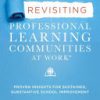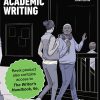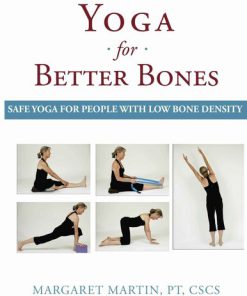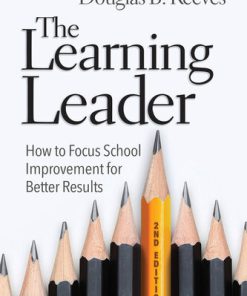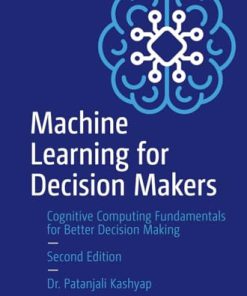Better Questioning for Better Learning Strategies for Engaged Thinking 1st Edition by Ben Johnson 1032007869 9781032007861
$50.00 Original price was: $50.00.$25.00Current price is: $25.00.
Better Questioning for Better Learning Strategies for Engaged Thinking 1st Edition by Ben Johnson – Ebook PDF Instant Download/Delivery: 1032007869, 9781032007861
Full download Better Questioning for Better Learning Strategies for Engaged Thinking 1st Edition after payment

Product details:
ISBN 10: 1032007869
ISBN 13: 9781032007861
Author: Ben Johnson
Learn how to ask deeper questions and develop better questioning habits with this important resource. Author Benjamin Stewart Johnson takes you step by step through the key considerations and brain- based research to keep in mind when developing questions. He begins with an overview of why it’s important to understand participants’ thought process when being asked questions. He then shows how to set expectations for virtual questions and face- to- face questions; how to plan authentic, higher- order questions; how to scaffold and differentiate questions; and how to avoid zombie questions. In addition, he debunks myths such as wait time and points out the best ways to help learners support their answers, use questions to check for understanding, and more. Each section concludes by helping you create an action plan to improve your skills in a given area. Appropriate for teachers, instructional coaches, training facilitators, and specialists, the book can be used independently or in schoolwide book studies to help educators of all subjects and grades improve the depth and quality of their questioning.
Better Questioning for Better Learning Strategies for Engaged Thinking 1st Table of contents:
Section I Questioning Foundation
1 Questions: Why Ask Questions?
1.1 The Purpose of Asking Questions
1.2 Gap in Questioning
1.3 Training on Questioning
2 Questioning Perspective: What Really Happens Inside a Participant’s Head When an Instructor Asks Questions?
2.1 Participants’ Thought Processes in Face-to-Face Learning
2.2 Participants’ Thought Processes in Synchronous Virtual Learning
2.3 Participants’ Thought Processes in Asynchronous Virtual Learning
2.4 Engaging the Participants’ Brains and the Reticular Formation
2.5 Getting Learners to Pay Attention
2.6 Developing a Sense of Urgency
2.7 The Brain Operates at the Speed of Light
3 Whole-Brain Questions: What Types of Questions Are Compatible With Brain-Based Learning?
3.1 Power of Questions and the Brain
3.2 HOTS and Questions
4 Virtual Questioning Distinctions: How Does That Differ From In-Person Questions?
4.1 Setting Expectations
4.2 High-Tech and Low-Tech Solutions
4.3 Preparing Online Questions
5 Substantiveness: How Can Questions Promote Deep Thinking?
5.1 Model Learner Expectations
5.2 Set Clear Expectations for Responses
5.3 Model Logic and Reasoning
Section I Questioning Foundation Conclusion
Section II Planning Learning
6 Wild Hog Questions: How Do You Prepare Effective Questions Before Instruction?
6.1 Why Plan for Questions?
6.2 What Are WILD HOG Questions?
6.3 WILD HOG Questions: Written Intentionally
6.4 WILD HOG Questions: Learning Depth
6.5 WILD HOG Questions: Higher-Order Genius
6.6 The WILD HOG Question Process of Creation
7 A Question for Every Brain: How Do You Differentiate Questions According to Needs?
7.1 Know Your Learners
7.2 Group Learning Is the Key to Differentiated Instruction
7.3 Options for Differentiation
8 Questions 101: What Are Effective Ways to Write Questions?
8.1 Creating Authentic Questions
8.2 How to Tier Questions by Complexity and Difficulty
8.3 Leading Questions vs Probing Questions
8.4 Coaching and Clarifying With Questions
8.5 How to Extend Understanding With Questions
8.6 Culturally Sensitive Questions
8.7 Accommodating for Language Learners
9 How to Scaffold Questions: How Does Scaffolding Questions Build on Participant Success?
9.1 What Does a Scaffolding Question Look Like?
10 Knowledge and Comprehension Questions: How Can Questions Prepare Participants to Learn?
10.1 Taxon Memory Questions
10.2 Flash Card Questions
10.3 Rule of Three
Section II Planning Learning Conclusion
Section III Learning
11 The Role of Repetition in Questions: How Can Questions Help Participants Remember Better?
11.1 How to Make Taxon Learning Enjoyable Through Questions
11.2 Questioning Progressions
12 Avoiding Zombie Questions: How Do You Avoid Asking Ineffective Questions?
12.1 What Are Zombie Questions?
12.2 Learners Are Not Blank Slates
12.3 Why Learners Don’t Answer Zombie Questions
13 Misconceptions About Asking Questions: How Can Questions Engage All Learners?
13.1 Initiate–Respond–Evaluate: How Do You Avoid the One Question, One Answer Trap?
13.2 The Fallacy of Wait Time: How Do You Stop Wasting Time Waiting for Participants to Answer?
13.3 Targeted Questions: How Do You Use Questions to Engage More Than the Front Row?
13.4 Physiological Questions: How Do You Engage All Participants’ Brains and Bodies With Questions?
14 Accountable Talk: How Do You Help Participants to Support Their Answers?
14.1 Question Training: How Can Participants Learn to Ask Effective Questions?
14.2 Socratic Questions: Answering Questions With Questions
14.3 Logic
14.4 Inquiry Learning: How Can Participants Use Questions to Learn?
15 Controlling Questions: How Do You Use Questions to Manage the Class?
15.1 Survey Questions: What Do You Know About Your Participants’ Thinking?
15.2 Polls
15.3 Surveys and Questionnaires
Section III Learning Conclusion
Section IV Assessing Learning
16 Checking for Understanding: How Do You Know All of Your Participants Are Learning?
16.1 Checking for Understanding at the End of a Topic
16.2 WILD HOG Questions to Check for Understanding Help the Instructor and the Learner
17 Formative Questioning: Constant Checking for Understanding That Doesn’t Annoy
17.1 Benefit to the Learner
18 Pre-Post Test Mindset: How to Use WILD HOG Questions as Evaluations
18.1 Value-Added Learning
18.2 Teaching to the Test
19 Review and Retrench Questions: What Do You Do When All of Your Participants Are Not Learning?
19.1 Don’t Repeat the Same Mistakes
19.2 Affective Filter
20 Formal Evaluations: How Do You Construct Accurate Assessment Questions?
20.1 Sampling Learning
20.2 WILD HOG Question Bank
20.3 Performance-Based Evaluations
20.4 Accurate Multiple Choice
Section IV Assessing Learning Conclusion
People also search for Better Questioning for Better Learning Strategies for Engaged Thinking 1st:
how questioning strategies improve learning
effective questioning benchmark
strategies for effective questioning in the classroom
asking better questions
Tags:
Ben Johnson,Questioning,Learning,Better
You may also like…
Relationships & Lifestyle - Diet & Nutrition
Yoga for Better Bones Safe Yoga for People with Osteoporosis 2nd Edition Margaret Martin
Uncategorized
Computers - Programming
Uncategorized
Education Studies & Teaching - Educational Guidance & Counseling
Computers - Professionals
Jurisprudence & Law - Legal Theory & Philosophy
Better Law for a Better World: New Approaches to Law Practice and Education 1st Edition Liz Curran
Housekeeping & Leisure - Interior Design & Decoration
Better Homes Gardens Farmhouse Do It Yourself 1st Edition Better Homes & Gardens
Romance - Contemporary Romance
For Better or For Worse Deathly Beloved Cozy Mystery 02 Miranda Grant Et El

